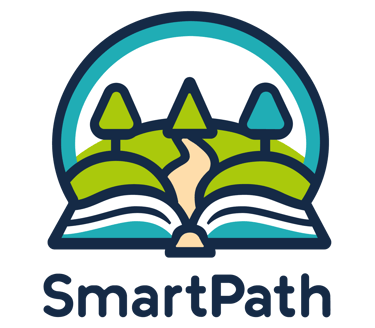AI and the Future of Education
Making Learning Personal


As a parent and a long-time enthusiast of educational technology, I’ve watched with excitement as artificial intelligence (AI) has begun to revolutionize education. AI tools are transforming children's learning experiences, making them more personalized and effective. These advancements are enabling families to tailor education to their child's specific needs in ways that once seemed unimaginable.
Since I was six, I dreamed about using technology to change how we learn. By 18, I attempted my first educational software startup, pursuing a vision for adaptive learning. Today, this vision is a reality, and the technology is accessible to everyone. AI makes homeschooling even more adaptable, allowing parents to provide high-quality, personalized education that evolves with our fast-changing world. We are on the cusp of a new era - one where AI levels the playing field and accelerates learning for us and our children.
In this article, I’ll share how AI is transforming the homeschooling landscape, supporting everything from personalized learning to diverse educational needs, and why now is an ideal time for parents to embrace these tools for their children’s educational journey.
Why Personalized Learning Matters Now More Than Ever
When it comes to education, one size does not fit all. Every child has unique strengths, challenges, and learning styles. As a new parent, I often think about how best to shape learning for my family. Parents today want smart, efficient ways to personalize their child’s education, but the resources often feel fragmented and time-consuming.
Many homeschooling parents we’ve spoken to report spending 10-14 hours per year, per child, just researching the right curriculum. That’s valuable time that could be used to nurture a love of learning. Technology, specifically AI, is changing that by simplifying choices and allowing families to focus on what truly matters.
AI is Changing Learning for Good
We’re entering an era of hyper-personalized learning. AI is here, and it’s time to embrace this opportunity to help our children succeed. AI-powered platforms can analyze students' performance, learning styles, and pace, tailoring educational content specifically to their needs. It’s no longer just about grades; AI provides insights into how a student learns best.
Over the years, working on EdTech projects, hackathons, and advising, I’ve seen many exciting advances. For instance, Carnegie Learning’s Cognitive Tutor uses AI to adapt its approach to each student’s performance, helping teachers monitor progress. Another example is Khanmigo, an AI tutor from Khan Academy powered by GPT-4, which assists students in math, reading, writing, and computer science, while also supporting teachers with data-driven lesson plans. While AI isn’t a replacement for teachers, it brings much-needed support to improve the educational experience.
How AI Supports Learning for Neurodivergent Students
The benefits of AI extend to neurodivergent learners, who are often underserved in traditional settings. Children with ADHD, autism, or dyslexia frequently struggle in conventional classrooms. AI, however, enables customized learning environments that adapt to each student’s needs.
At a recent Tech Week AI hackathon, I saw inspiring EdTech solutions, including tools that support ADHD students by breaking tasks into manageable parts and celebrating their progress. Some tools even allow students to connect with a parent or teacher, creating a blended support system. Features like adaptive pacing, multimodal content delivery, and real-time feedback help neurodivergent students stay focused and engaged. As a neurodivergent learner diagnosed with ADHD at 30, I often wish I’d had these tools in school. Growing up, I had to develop my own techniques; today’s learners have AI to make learning smoother.
The Shift Toward a Data-Driven Approach
Perhaps AI's most significant impact on homeschooling is the shift toward data-driven learning. By analyzing student performance, engagement, and learning patterns, AI provides valuable insights for both parents and learners. This approach enables parents to make better-informed decisions about curriculum and teaching strategies.
For homeschooling parents, AI can be an invaluable assistant, simplifying tasks like lesson planning, grading, and resource creation. Microsoft's recent AI in Education Report shows nearly half of teachers use AI for tasks like proofreading and lesson planning, while over half use it to create personalized learning, provide real-time feedback, and build critical thinking skills in students. By automating routine tasks, AI allows parents to focus on direct guidance and interaction with their children. Instead of waiting for semester-end assessments, AI empowers parents to make informed, real-time decisions, maximizing learning outcomes.
Conclusion
AI is undeniably shaping the future of homeschooling, offering unprecedented opportunities for personalization, engagement, and efficiency in education. As someone who’s been fascinated by EdTech since childhood, I’m thrilled to see these advancements enhance the homeschooling experience. By embracing AI tools, we can create rich, adaptive learning environments that cater to each child’s needs and interests. As parents and educators, our goal is to balance AI’s capabilities with the personal touch that is so essential in homeschooling.
For parents considering or engaged in homeschooling, now is the time to explore how AI can transform your child’s educational journey. By leveraging these powerful tools, we can offer our children a truly personalized, engaging, and future-ready education right from the comfort of home. The future of homeschooling in the age of AI looks bright, promising an inclusive, effective, and exciting learning experience for all.
Interested in staying up to date with what we’re working on at SmartPath? Subscribe to our newsletter to stay up to date with what we're working on. And try our new tool today if you're looking for homeschool curricula.
